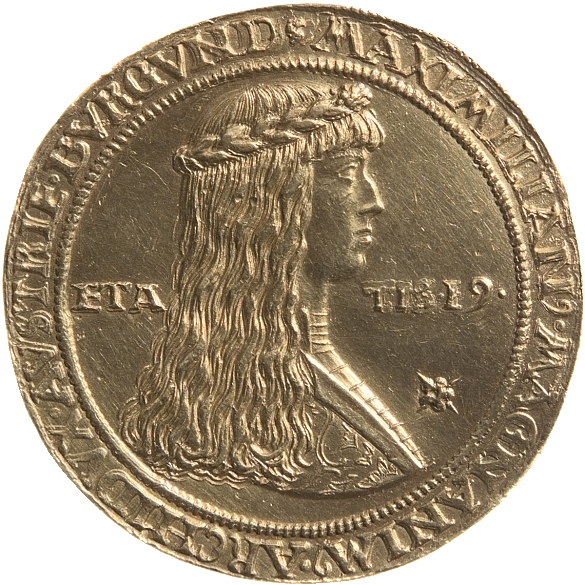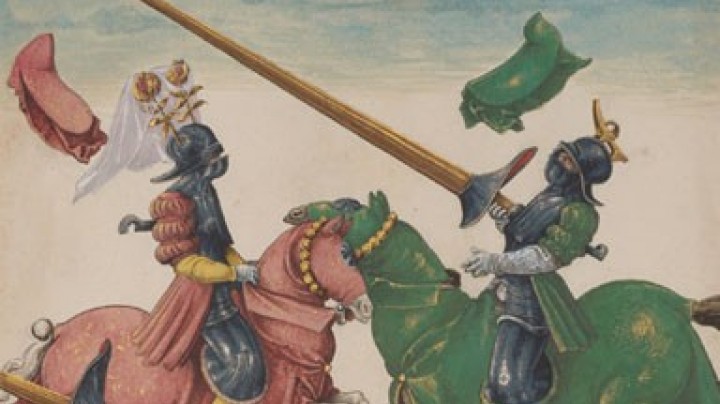Maximilian I: ‘Early practice maketh a master emperor …’
Maximilian was the third child of Emperor Frederick III and Eleonora of Portugal. As the couple’s only surviving son he was groomed from childhood for his future role as ruler.
His boyhood was difficult. He witnessed the bitter rivalries within the dynasty, some of which erupted into military conflict at times. One early and probably also traumatic experience during his childhood was the siege of the Vienna Hofburg by his uncle, Albrecht VI, together with his aristocratic supporters and angry citizens in 1462. Aged just three, Maximilian was trapped with his parents in the palace, which was under heavy bombardment from cannon. The occupants of the palace began to starve, and little Maximilian, additionally weakened by an unidentified illness, fell into a critical condition.
Maximilian also suffered from the differences between his parents, whose characters were at complete variance with one another. His father, Emperor Frederick III, was a severe and secretive individual with extremely pragmatic attitudes, while his mother Eleonora was a spirited woman who sometimes displayed her outright dislike of her phlegmatic spouse. His parents had contrary opinions on politics and upbringing. His father wanted him to have a practical education and to be hardened towards physical discomfort while Eleonora spoiled her son and laid the foundations for his marked sense of monarchical mission and love of the outward display that represented his rank and standing. As a child Maximilian was torn between his parents.
This left its mark on the child’s development. Maximilian made only slow progress and developed an obstinate nature. He later gave an idealized account of his childhood in the autobiographical texts Weisskunig and Theuerdank, which represent important, albeit sanitized sources. Although in his later years as ruler Maximilian was marked by a great thirst for knowledge, in his childhood and youth he was a hard-to-motivate pupil.
Maximilian also had a speech defect as a child caused by a deformation of his lower jaw that had resulted in an extremely prominent lower lip. His speech had initially made his father fear that his son might be seen as feeble-minded or even mute.
The prince’s education was influenced by early humanist currents of the time, and his tutors were engaged from the circles of the university at Vienna. However, Frederick was also keen for him to acquire practical skills. In keeping with the medieval ideal of a well-versed housefather who was qualified to head a household, the young boy was taught the rudiments of horse-breeding, horticulture and manual skills. The latter became a much-loved leisure activity later on in Maximilian’s life. At Kreuzenstein Castle near Vienna, for example, there is a turning lathe on display which is traditionally held to have been used by Maximilian to satisfy his predilection for manual crafts.
Another focus of his upbringing lay in sporting activities such as horsemanship, hunting, dancing and fencing. Maximilian was athletic, excelling at jousting, and proved himself a daring horseman and tireless huntsman in the high mountain regions.















